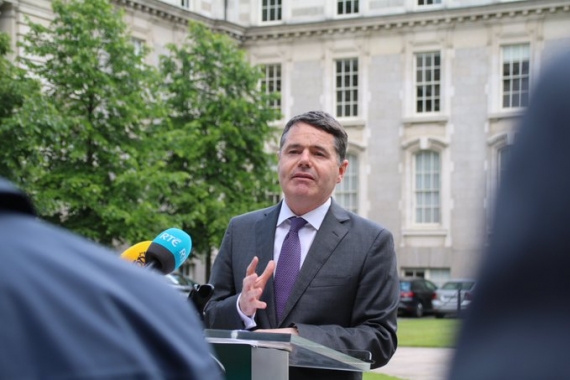
The Irish government will today officially sign up to the OECD agreement on international corporate tax changes after approval was given at cabinet yesterday. The decision comes on the back of assurances received that the effective minimum tax rate would not go above 15% and that Ireland could maintain a lower rate of 12.5% for businesses with revenues under the €750m threshold.
Minister for Finance Paschal Donohoe stated that the change would impact 1500 foreignowned multinationals and 56 Irish-owned multinationals operating in Ireland. There are still important details to be ironed out and the deal must also make it through in various countries, although it is expected that the new regime will come into play in 2023.
The 12.5% corporation tax rate and the stability of that rate has long been an attraction for multinational investment into Ireland. However, it has long been recognised that international tax changes were inevitable. Ireland has said from the start that the OECD is the appropriate forum for agreement.
Goodbody Stockbrokers today said the 15% global minimum tax rate could have been a lot worse for Ireland. The new rules provide a global framework to prevent profit shifting behaviour, but Ireland still has one of the lowest corporation tax rates in Europe. On the other hand, its biggest competitor for FDI, the UK, has decided it will increase corporation tax rates in the coming years in addition to the restricted access it now has to the EU Single Market.
According to Goodbody Stockbrokers, "Although Ireland would have preferred the minimum tax rate to settle at 12.5%, the outcome is better than would have been feared when US Treasury Secretary Yellen called for a 21% rate earlier this year. Previous studies (ESRI) have shown that decisions around the location of FDI are very sensitive to changes in the corporation tax rate, particularly when coming from a low level. This assumes that everything else is equal. But everything is not equal."
Ibec, the group that represents Irish business, has said that the new international agreement on corporate tax reform is the right decision, at the right time. The group say accession to the OECD accord may pose a competitiveness challenge but Ireland’s regime will retain the advantages of certainty on the most competitive rate possible, Ireland's existing track record of significant substantial activity and delivery, access to the single market for trade and talent and a business-friendly environment generally.
IDA Ireland, the agency responsible for the attraction and retention of inward foreign direct investment (FDI) into Ireland, also welcomed the news. The IDA say that the changes resulting from Ireland’s participation in the global tax deal are not likely to adversely impact Ireland’s existing base of Foreign Direct Investment (FDI). The agency say Ireland will remain competitive from a tax perspective and the recent changes to the draft OECD agreement secured by Ireland provide clarity on the global minimum rate that will apply for large companies, making it possible for Ireland to continue to provide stability for investors.
Source: www.businessworld.ie

















